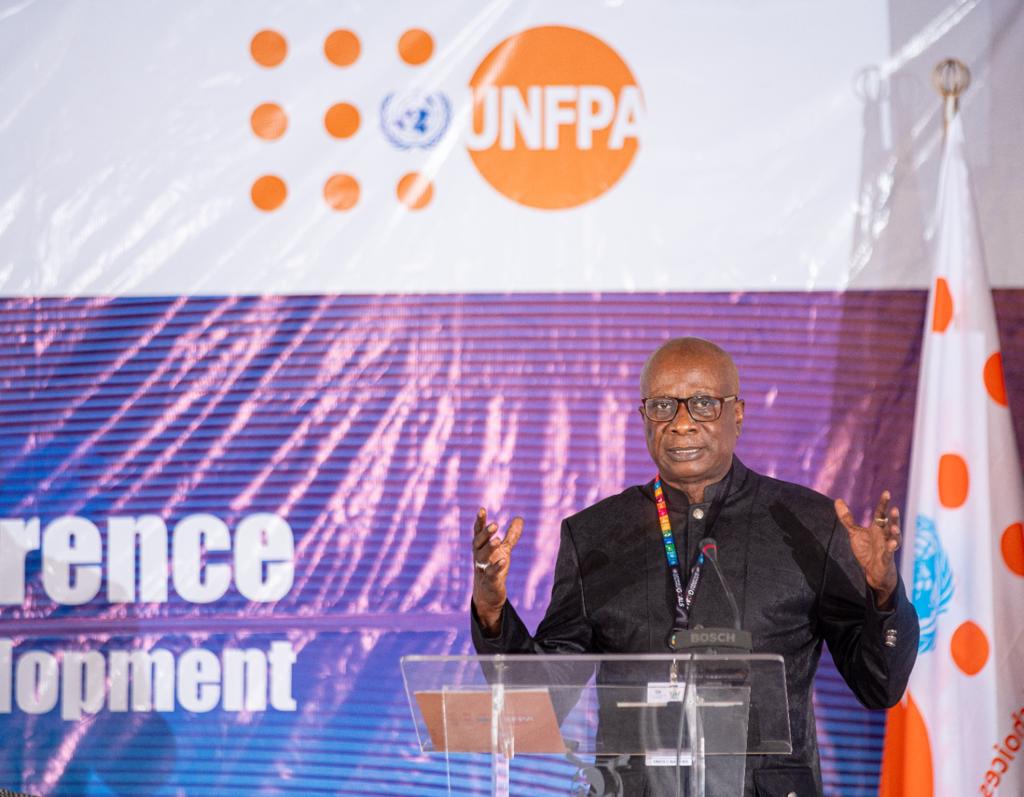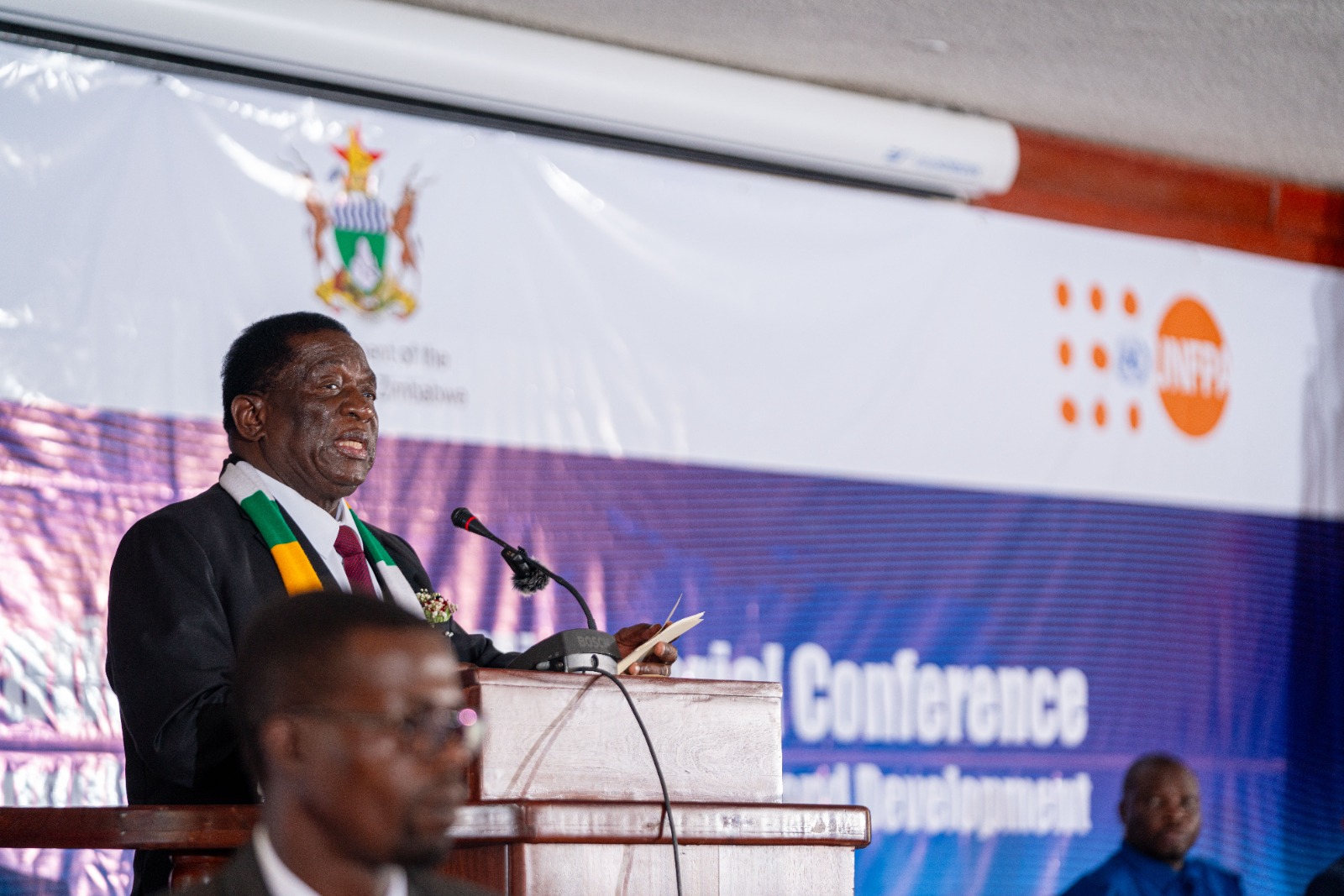|
Getting your Trinity Audio player ready...
|
During the 20th International Inter-Ministerial Conference on South-South and Triangular Cooperation on Population and Development underway in Victoria Falls, Zimbabwe has demonstrated that it is on track towards meeting the needs of its various populations.
In his keynote address, while officially opening the event that will lead up to the commemoration of the 30th Anniversary of the International Conference on Population and Development, President Emmerson Mnangagwa said the multi-pronged and people-centered national development agenda has registered progress on the social development front.
“Consequently, Zimbabwe improved in the Human Development Index rankings. My Administration is scaling up the implementation and promotion of sustainable economic growth, employment, and wealth creation towards accelerating national development, modernisation and industrialisation. We are determined, to lift many more of our people out of poverty into a higher quality of life,” President Mnangagwa said.
He said the Government of Zimbabwe has made significant strides in implementing the goals of the International Conference on Population and Development.
To date, the total population of Zimbabwe has doubled from 7.6 million in 1982 to 15 million in 2022.
“This increase in the population growth rate is attributable to an overall improved quality of life. Additionally, the decline in HIV and AIDS-related mortality rates owing to the increased availability of Anti-Retroviral Treatment as well as reduced mother-to-child HIV transmission has had positive impacts.
“Similarly, the fertility rate has steadily declined, while life expectancy at birth has increased due to comprehensive and coordinated socio-economic and health care interventions. Additionally, existing social safety nets such as public health and education assistance, drought relief, public works, and input support schemes for vulnerable families, and smallholder and communal farmers are being continuously broadened. The introduction and wide adoption of Pfumvudza/Intwasa Climate Proofed Agriculture Programme, among other comprehensive policy initiatives, has seen our country realise national food and nutrition security.
“Leveraging on the increased access to quality and affordable education, our country is ensuring that high literacy rates translate to an enhanced quality of life for our people and the economy as a whole. Further, the introduction of our Heritage Based Education 5.0 Model is fast transforming, industrialising and modernising our economy. Our youth and learners are now equipped to produce goods and services,” he added.
Addressing the same gathering, His Excellency, Mr Edward Kallon, UN Resident and Humanitarian Coordinator for Zimbabwe, said since its inception, the ICPD has achieved remarkable progress, including increased access to modern contraception, improved family planning services, reduced maternal mortality rates, and global efforts to eliminate harmful practices such as female genital mutilation and child marriage.

However, he said challenges remain, especially in areas affected by population growth, economic instability, and the impact of crises like the COVID-19 pandemic.
“To address these challenges and accelerate the achievement of the ICPD goals, it is imperative that we leverage mechanisms such as South-South and Triangular Cooperation (SSTC). SSTC has been recognized as a powerful tool for identifying and implementing solutions to common development challenges,” Mr. Kallon said.
He added that the recent UN General Assembly highlighted the strong linkages between population and development. The urgency to speed up action on the Sustainable Development Goals (SDGs), addressing demographic trends, promoting reproductive health and rights, and investing in youth empowerment were all emphasized as critical components of sustainable development.
Mr. Kallon highlighted the importance of strengthening institutional capacities and allocating adequate resources to support South-South and triangular cooperation, as mentioned in the UN Secretary-General’s 2022 State of South-South Cooperation report.
He said in mobilizing resources through South-South and triangular cooperation, it is crucial to explore successful practices, lessons learned, and potential areas for collaboration.
“This session provides a platform for dialogue, knowledge sharing, and networking among stakeholders involved in SSTC. Furthermore, by adopting a financing for development-approach and focusing on domestic resource mobilization, we can address population and development challenges more effectively. Strengthening international cooperation, solidarity, and partnerships anchored on multilateralism and the UN Charter is vital to deploying SSTC resources and achieving sustainable development goals.
“By mobilizing resources through SSTC, we can bridge financing gaps and contribute to the implementation of the SDGs. This requires exploring innovative financing mechanisms, leveraging partnerships, and focusing on domestic resource mobilization,” he added.






